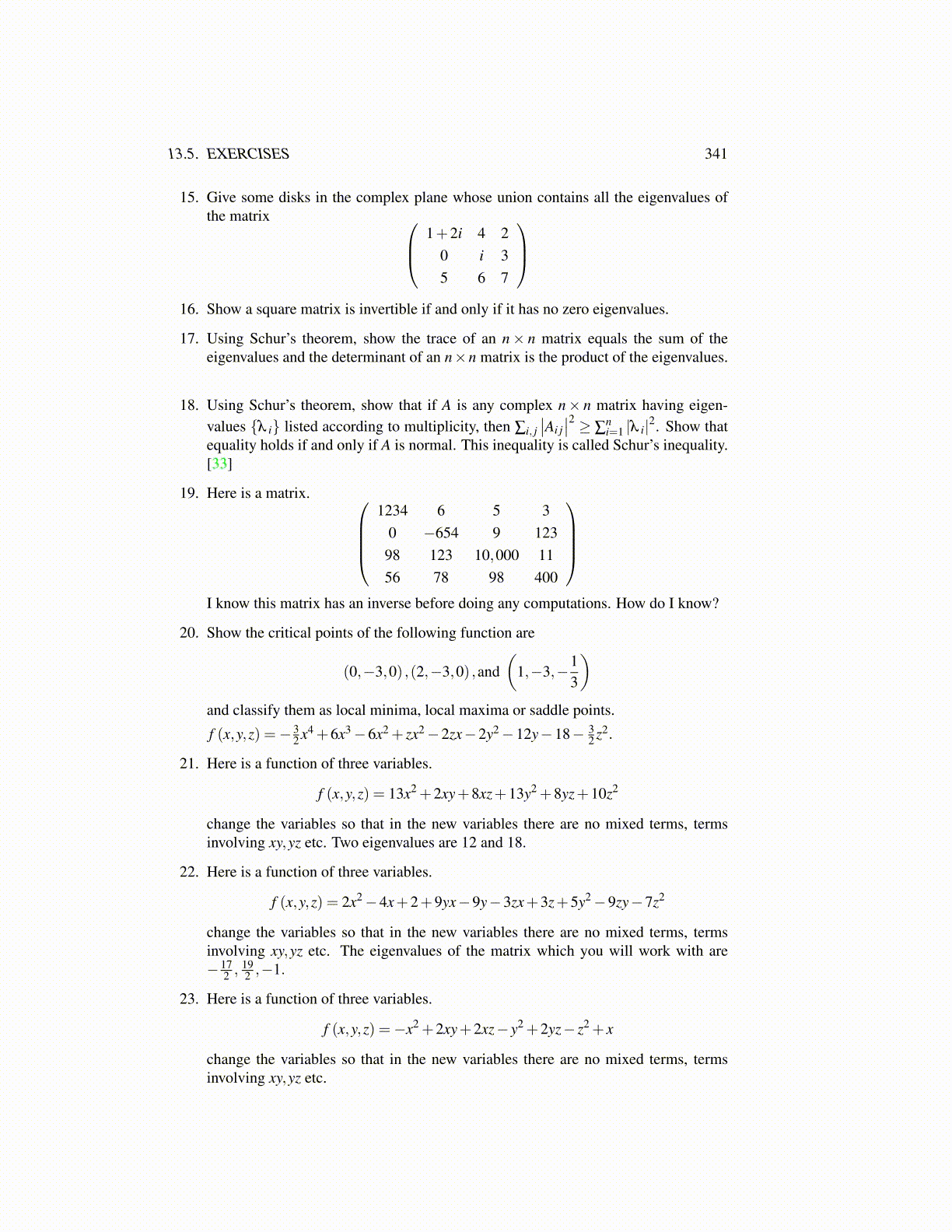
13.5. EXERCISES 341
15. Give some disks in the complex plane whose union contains all the eigenvalues ofthe matrix 1+2i 4 2
0 i 35 6 7
16. Show a square matrix is invertible if and only if it has no zero eigenvalues.
17. Using Schur’s theorem, show the trace of an n× n matrix equals the sum of theeigenvalues and the determinant of an n×n matrix is the product of the eigenvalues.
18. Using Schur’s theorem, show that if A is any complex n× n matrix having eigen-values {λ i} listed according to multiplicity, then ∑i, j
∣∣Ai j∣∣2 ≥ ∑
ni=1 |λ i|2. Show that
equality holds if and only if A is normal. This inequality is called Schur’s inequality.[33]
19. Here is a matrix. 1234 6 5 3
0 −654 9 12398 123 10,000 1156 78 98 400
I know this matrix has an inverse before doing any computations. How do I know?
20. Show the critical points of the following function are
(0,−3,0) ,(2,−3,0) ,and(
1,−3,−13
)and classify them as local minima, local maxima or saddle points.
f (x,y,z) =− 32 x4 +6x3−6x2 + zx2−2zx−2y2−12y−18− 3
2 z2.
21. Here is a function of three variables.
f (x,y,z) = 13x2 +2xy+8xz+13y2 +8yz+10z2
change the variables so that in the new variables there are no mixed terms, termsinvolving xy,yz etc. Two eigenvalues are 12 and 18.
22. Here is a function of three variables.
f (x,y,z) = 2x2−4x+2+9yx−9y−3zx+3z+5y2−9zy−7z2
change the variables so that in the new variables there are no mixed terms, termsinvolving xy,yz etc. The eigenvalues of the matrix which you will work with are− 17
2 , 192 ,−1.
23. Here is a function of three variables.
f (x,y,z) =−x2 +2xy+2xz− y2 +2yz− z2 + x
change the variables so that in the new variables there are no mixed terms, termsinvolving xy,yz etc.